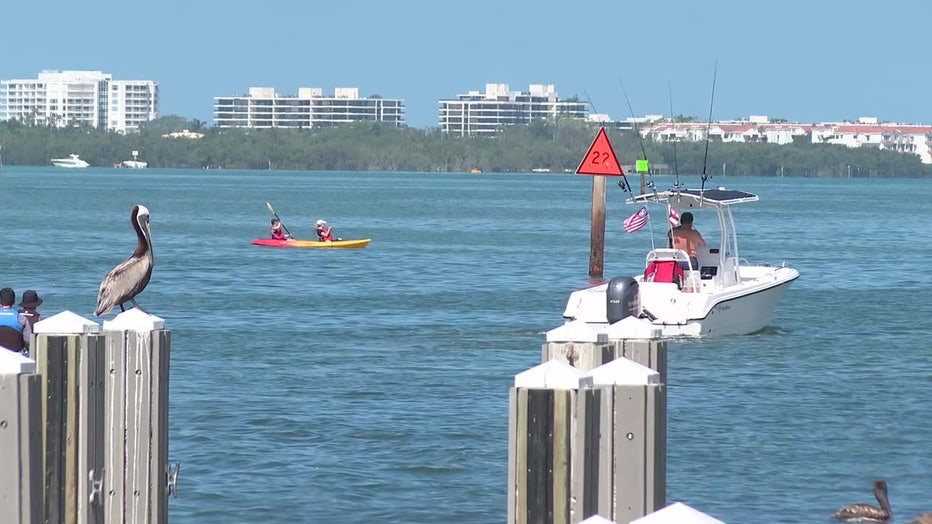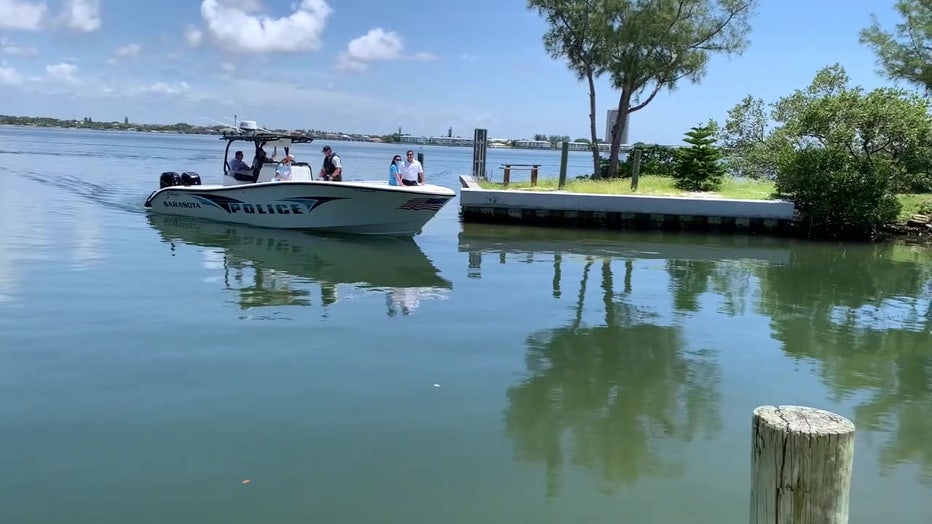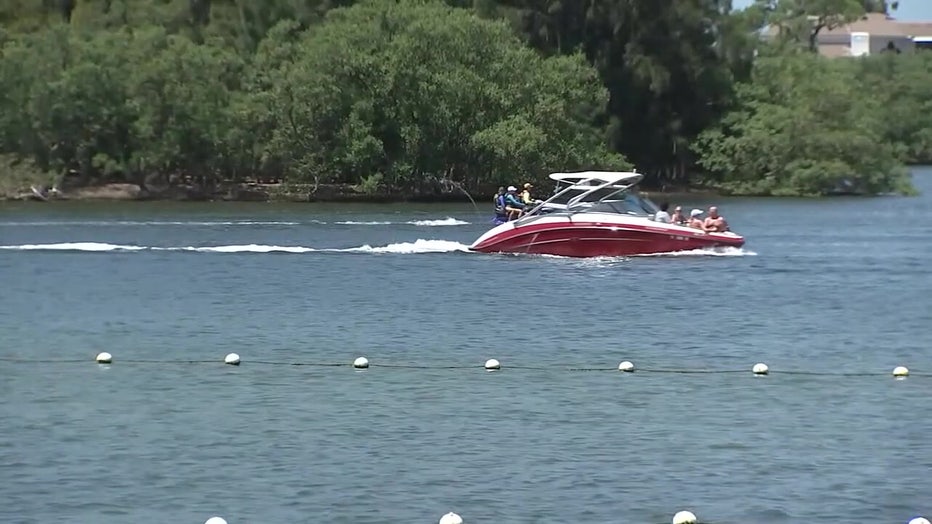How to stay safe on the water over Memorial Day weekend

Boating safety for Memorial Day weekend
Florida leads the nation in the number of boat crashes and deaths and that’s why officials are stressing safety this holiday weekend. Kellie Cowan reports.
Every year ahead of Memorial Day weekend, safety officials and law enforcement officers across the country team up to get the word out about National Safe Boating Week.
Whether you’re new to boating or a seasoned veteran, it’s a good time to check for proper equipment and brush up on safety protocols and local laws ahead of the especially busy holiday weekend.
This weekend, law enforcement will be out in full force looking out for impaired captains, unsafe speeds or behavior, and conducting random safety checks.
Florida leads the nation in boating accidents and deaths.
The Florida Fish and Wildlife Commission’s 2021 Boating Accidents Statistical Report reports 751 boating accidents and 60 boating-related fatalities. More than half of those deaths were due to drowning.
Safety officials stress many fatalities could have been prevented if the victims had worn life jackets.

File: Boat on water.
Legally, any boat must have a life vest for everyone on board. Florida law requires kids under 6 to wear life vests at all times. It’s also law to wear one for anyone, regardless of age, while water skiing, tubing or on a personal watercraft like a jet ski.
READ: ‘Ethan’s Law’ moves forward in honor of 10-year-old killed in boating crash
According to the FWC, falling overboard is the leading category of boating fatality. Passengers or drivers who fall overboard can easily drown, regardless of their ability to swim, which is why officials suggest that everyone on board a boat wear a life jacket or flotation device at all times.
In 2021 a new engine cut-off switch law took effect. The law requires boat operators to have an engine cut-off switch attached to them when operating any personal watercraft or most powerboats under 26 feet in length.

File: Boat on water.
The safety feature is designed to stop a boat’s engine if the driver is thrown from the helm.
Before heading out on the water, it’s important to communicate your float plan with someone back on land. At a minimum, you should let someone know where you’re going and how long you expect to be out, which is especially important if you’re planning to go anywhere remote or far offshore.
READ: Sarasota police to work with Coast Guard for vessel inspections to help keep boaters safe
"If you're going offshore fishing or just going out to the sandbar, let people know where you're going and when they should expect you back," said Petty Officer Third Class Nicholas Jennings of the U.S. Coast Guard. "If you're not able to alert us, whether it's a cell phone or a personal locator beacon, you have that extra option for someone to call and say, hey, they're missing. That'll give us at the Coast Guard a better vector in to where to look for you."

File: Boat on water.
Finally, make sure passengers are aware of where to find safety equipment like a throwable floatation device, life vests, and flares. Passengers should also know to stay seated in actual seats when a boat is in motion. Sitting or standing on the bow, gunwales, transom or any other place without proper seating is dangerous while underway. Passengers can easily lose their balance and be thrown overboard in a moment’s notice.
READ: Hillsborough County inspectors hope to make a splash when it comes to swimming pool safety
"You could hit a wave and go overboard. If you get sucked under the boat and hit by the prop it’s game over," said JetRide Boat Club dockhand Cole Smith.
The National Safe Boating Council recommends these tips for boaters:
- Take a boating safety course. Gain valuable knowledge and on-water experience in a boating safety course with many options for novice to experienced boaters.
- Check equipment. Schedule a free vessel safety check with local U.S. Coast Guard Auxiliary or U.S. Power Squadrons to make sure all essential equipment is present, working and in good condition.
- Make a float plan. Always let someone on shore know the trip itinerary, including operator and passenger information, boat type and registration, and communication equipment on board before you leave the dock.
- Wear a life jacket. Make sure everyone wears a life jacket – every time. A stowed life jacket is no use in an emergency.
- Use an engine cut-off switch – it's the law. An engine cut-off switch is a proven safety device to stop a powerboat engine should the operator unexpectedly fall overboard.
- Watch the weather. Always check the forecast before departing on the water and frequently during the excursion.
- Know what's going on around you at all times. Nearly a quarter of all reported boating accidents in 2021 were caused by operator inattention or improper lookout.
- Know where you're going and travel at safe speeds. Be familiar with the area, local boating speed zones, and always travel at a safe speed.
- Never boat under the influence. A BUI is involved in one-third of all recreational boating fatalities. Always designate a sober skipper. Having alcohol in your system makes you ten times more likely to die in a boating accident than someone who’s sober.
- Keep in touch. Have more than one communication device that works when wet. VHF radios, emergency locator beacons, satellite phones, and cell phones can all be important devices in an emergency.
The Safe Boating Campaign offers a variety of free and paid resources to support area boating safety education efforts.
Learn more at www.safeboatingcampaign.com.

